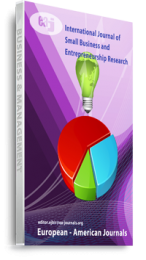This paper investigates the effect of corruption on Small and Medium Enterprises (SMEs). Specifically it looks at the relationship between corruption and SMEs performance including price, profit, growth, productivity, wages and employment. Researches on the effect of corruption on SMEs in developing countries are scarce. Therefore, there is a value in investigating the effect of corruption on SMEs. As a result, this paper filled a research gap in the study of SMEs.In order to achieve the purpose of the study, qualitative and quantitative research methods were employed. The qualitative research was carried out using semi-structured interviews. Alternatively, the quantitative method was conducted using questionnaires as the principal survey instrument complemented by personal interviews. The data for the study was collected using mainly 340 questionnaires. The sampling design for the survey was based on stratified random sampling. The stratification was by region and business sector.The results from this study indicated that corruption is positively related with price. As predicted, corruption is negatively associated with growth, productivity and employment. But it shows no significant statistical relationship with wages and profit. In addition, the descriptive survey analysis reveals that corruption reduced SMEs owner/managers access to finance. Another interesting finding was that a large number of the respondents perceived corruption as a practice that leads to extortion by government officials. This study contributes to knowledge by providing insights on the effect of corruption on SMEs performance in Sierra Leone. To the best of the authors’ knowledge, the study is one of the few studies ever done in a developing country context.
Keywords: Corruption, Sierra Leone, Small and Medium-Enterprises (SMEs)

